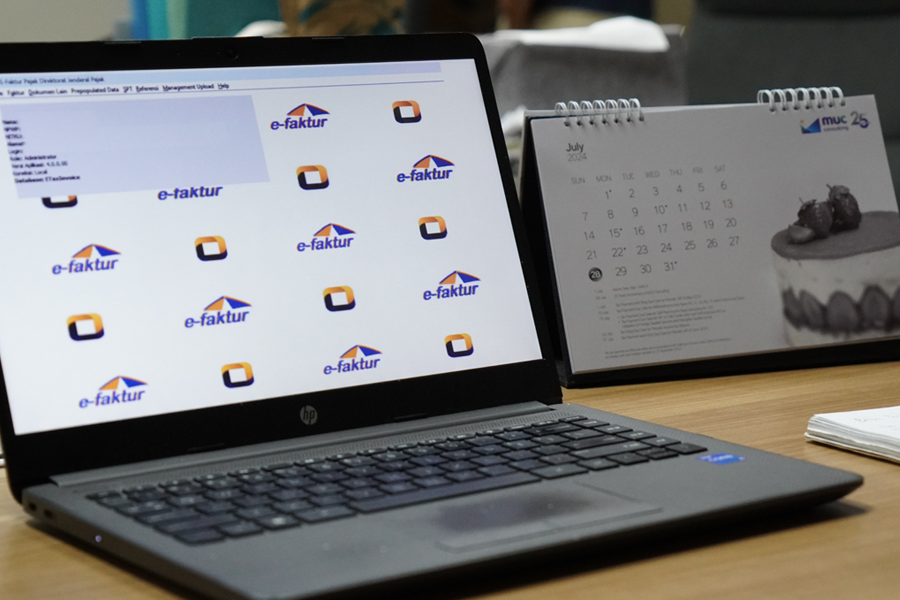Non PKP Boleh Terbitkan Faktur?

Pembuatan Faktur Pajak merupakan kewajiban setiap Wajib Pajak yang telah dikukuhkan sebagai Pengusaha Kena Pajak dan melakukan penyerahan Barang dan Jasa Kena Pajak. Namun bagaimana apabila Wajib Pajak belum dikukuhkan sebagai PKP namun melakukan penyerahan barang atau jasa kena pajak, apakah tetap wajib membuat Faktur Pajak? Berikut uraiannya.
Pajak Pertambahan Nilai (PPN) merupakan salah satu jenis pajak yang wajib dipungut pada saat terjadi penyerahan Barang Kena Pajak (BKP) dan/atau Jasa Kena Pajak (JKP).
Sesuai dengan ketentuan Undang-Undang PPN (UU PPN), bukti pungutan PPN adalah Faktur Pajak yang di dalamnya tercantum beberapa keterangan terkait penyerahan BKP dan/atau JKP, sebagai sarana administrasi yang sangat penting dalam pelaksanaan ketentuan PPN.
Pengertian Faktur Pajak
Sebelumnya, perlu diketahui bahwa yang dimaksud dengan Faktur Pajak yaitu bukti pungutan pajak yang dibuat oleh Pengusaha Kena Pajak (PKP) yang melakukan penyerahan BKP atau penyerahan JKP.
Tidak semua wajib pajak dapat menerbitkan faktur pajak. Karena hanya Wajib Pajak yang memenuhi ketentuan yang dapat memungut PPN dan menerbitkan Faktur Pajak. Wajib Pajak tersebut kemudian kita kenal sebagai Pengusaha Kena Pajak (PKP).
Sebagaimana disebutkan dalam UU PPN, PKP merupakan Pengusaha, baik Orang Pribadi atau Badan, yang melakukan penyerahan BKP dan/atau JKP. Namun, tidak semua Pengusaha termasuk dalam klasifikasi PKP.
Kriteria Pengusaha Kena Pajak
Sesuai ketentuan, Pengusaha yang memiliki omzet melebihi Rp 4,8 Miliar selama 1 (satu) tahun buku/tahun kalender, wajib melaporkan usahanya untuk dikukuhkan sebagai PKP.
Sementara Pengusaha yang omzet nya tidak melebihi Rp 4,8 Miliar, diberikan opsi untuk memilih apakah akan dikukuhkan sebagai PKP atau tidak.
Untuk memahami kewajiban pengukuhan PKP, dapat digambarkan dengan bagan sederhana sebagai berikut:
.png)
Jadi, pengusaha yang belum dikukuhkan sebagai PKP (Pengusaha Non PKP) tidak dapat memungut PPN dan menerbitkan Faktur Pajak.
Sanksi Tidak Menerbitkan Faktur Pajak
Sesuai ketentuan, Pengusaha Non PKP yang dengan sengaja menerbitkan Faktur Pajak, akan dipidana dengan pidana penjara paling singkat 2 (dua) tahun dan paling lama 6 (enam) tahun serta denda paling sedikit 2 (dua) kali jumlah pajak dalam faktur pajak dan paling banyak 6 (enam) kali jumlah pajak dalam faktur pajak.
Berdasarkan uraian di atas, Perusahaan saudara yang belum dikukuhkan sebagai PKP tidak diperbolehkan memungut PPN dan menerbitkan Faktur Pajak. Jika, tetap menerbitkan faktur pajak, Perusahaan Anda akan dianggap melakukan penyalahgunaan berupa penerbitan dan/atau penggunaan faktur pajak dan untuk menghindari sanksi pidana.


